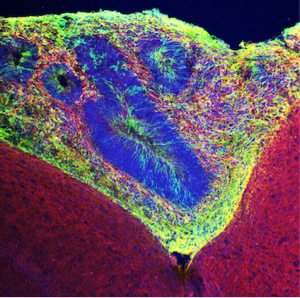Researchers Develop Immune Tissues in Lab for Next-Gen Immunotherapies
Tissue engineering is an interdisciplinary field combining knowledge and technology of cells, engineering materials and suitable biochemical factors in order to create artificial organs and tissues, or to regenerate damaged tissues.
Vaccines and immunotherapies have supplied tremendous developments for public health, but there are fundamental disconnects between where many studies performe-in cell culture and animal model-along with the greatest application in people. Engineering immune cells and organs, for example bone marrow, thymus, lymph nodes and spleen, can be instrumental in overcoming those obstacles.
Now, in this direction, scientists at the University of Maryland, have come up with immune tissues that could be designed and implanted to create next-generation vaccines or immunotherapies for variety of diseases, or perhaps even serve as novel tools for the early diagnosis of cancers or other illnesses.
“One day engineers might be able to design immune tissues for implantation into patients to generate the exact immune responses needed to fight a disease such as cancer without side effects,” said University of Maryland (UMD) Fischell Department of Bioengineering (BIOE) associate professor Christopher Jewell, Ph.D., corresponding author on the paper and principal investigator of the BIOE Immune Engineering Lab. “These technologies might also create accurate immune tissue models that enable rapid screening of vaccines or immunotherapies outside the body.
”“The field of bioengineering has advanced to the point that we understand at least some of the ways in which chemistry and material properties—such as mechanical stiffness and 3D structure—impact immunological function and regulation,” Dr. Jewell said.
“The field is starting to put these two areas together to recreate very complicated immune functions, but much of the work thus far has been in controlled settings. As such, these advances could provide new opportunities anywhere in which the immune system is involved in either fighting or causing disease. This covers infection, cancer, autoimmunity, transplantation, and many other areas where great unmet medical needs exist.”
“There are major important and imaginative advances highlighted by this review,” added Jonathan Bromberg, M.D., Ph.D., professor of surgery and microbiology and Immunology at the University of Maryland School of Medicine, and a co-author of the Nature Materials paper.
“First is the combination of immunologic and materials sciences approaches to guide and control the immune response. Second is the possibility of creating not only ‘positive’ vaccines that generate proinflammatory or curative immune responses for cancer or infectious diseases, but also ‘negative’ vaccines that prevent or curtail responses for autoimmunity or transplantation.”
“Researchers do a lot of work in cell cultures and animal models, but both have limitations,” explained Dr. Jewell. “In the case of cell cultures, most often, researchers work with 2D cultures; but, everything in the body is three-dimensional. And, if you’re working with one or a few cell types in culture, the results could be very different from what they might be in the human body where there is a heterogeneous mixture of cells everywhere. This is significant because the types of immune responses that develop during disease are impacted by all of these characteristics.”
Prior to this study, Dr. Jewell and team have also demonstrated that, by controlling the local signaling environment in a lymph node, the specificity and effectiveness of an immune response throughout the our bodies can be controlled without systemic exposure.
“The knowledge base in immunology, materials science, and engineering is sophisticated enough—and there are enough researchers working at the interface with sufficient momentum and cooperativity —that we’re able to see that breakthroughs are possible,” Dr. Jewell said.






























